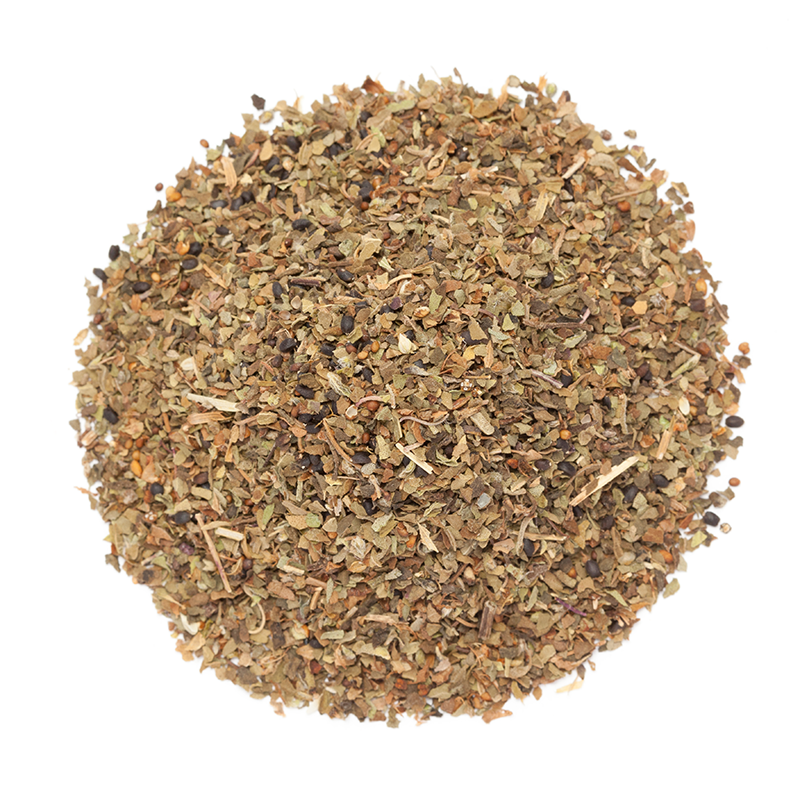Experience the Ceremonial and Healthful Properties of Holy Basil (Tulsi)
Holy Basil, also known as Tulsi (Ocimum sanctum), has been used in folk recipes for hundreds of years. With a peppery and crisp flavor, this ceremonial plant is primarily used in Ayurveda for its health and wellness properties.
Please Note: We typically stock Rama, Vana, and Krishna tulsi varietals. For currently selections, please contact us.
More about Holy Basil: The Mother of Herbs
Holy Basil is a revered adaptogenic herb central to Ayurvedic medicine. Its spicy, pungent leaves are rich in eugenol, ursolic acid, and flavonoids, celebrated for valuable properties. Commonly used in herbal teas and traditional remedies, it's lauded for enhancing well-being and supporting a healthy immune system. Originating from India, this sacred herb is an essential component in holistic health practices, offering a natural, harmonious path to wellness.
Know Your Ingredient: Holy Basil (Tulsi)
| Latin Name | Ocimum sanctum |
| Active Ingredients | Eugenol, Ursolic Acid, Quercetin and Kaempferol |
| Classification Secondary Metabolite | Flavonoids ( Quercetin and Kaempferol), Terpenoids (Eugenol) |
| Flavor | Spicy, pungent, slightly sweet |
| Common Use | Herbal tea, traditional medicine, culinary ingredient |
| Origin | Native to the Indian subcontinent, widely cultivated in Southeast Asia |


